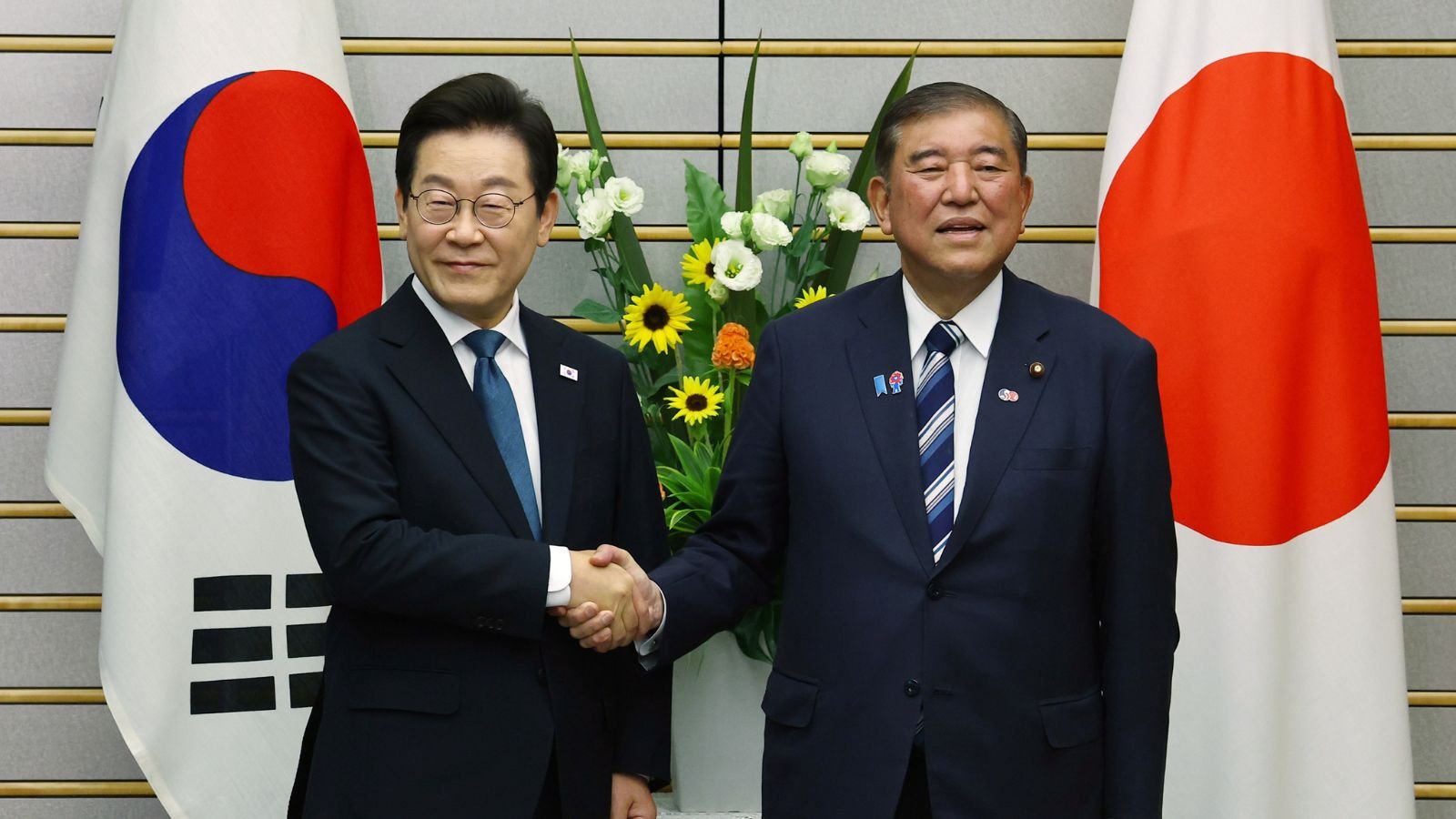South Korea’s President Highlights Friendly Ties in Japan Before Key Summit with Trump
In a move that underscores the strengthening relationship between South Korea and Japan, President Moon Jae-in
recently visited Tokyo to emphasize the importance of their diplomatic ties. As the two nations prepare for an
upcoming summit with former U.S. President Donald Trump, the meeting served as a crucial moment for both
countries to align on pressing global issues.
The Historical Context of Korean-Japanese Relations
The relationship between South Korea and Japan has long been a complex tapestry woven with historical tensions
and economic interdependence. Over the last two decades, both countries have taken significant steps to
strengthen their bilateral relations, primarily focusing on economic cooperation and technological innovation.
According to TechCrunch, South Korea and Japan have consistently ranked among the top ten countries globally in
technological advancement.
Key Areas of Cooperation
During the meeting, both nations agreed to collaborate on several critical issues, ranging from clean energy and
artificial intelligence to demographic challenges like low birth rates and aging populations. These areas are
not only pivotal for national progress but also play a significant role in global technological trends.
| Area | Description |
|---|---|
| Clean Energy | Developing sustainable energy solutions to address climate change. |
| Artificial Intelligence | Enhancing AI capabilities to drive technological innovation. |
| Low Birth Rates | Addressing demographic challenges impacting economic growth. |
| Aging Population | Creating strategies to improve quality of life for the elderly. |
| Disaster Prevention | Implementing technology-driven disaster management systems. |
Technological Trends and Industry Opinions
According to The Verge, the collaboration on artificial intelligence between South Korea and Japan could have
significant implications for the global tech landscape. Both countries have been at the forefront of AI
research, with South Korea investing heavily in AI startups and Japan pioneering advancements in robotics.
The move to cooperate in clean energy likewise reflects a broader global trend towards sustainability. The
International Energy Agency (IEA) notes that collaborations such as this are crucial for achieving global
climate goals. With both nations committed to reducing carbon emissions, the opportunity to share resources and
expertise holds great promise.
Anticipated Summit with Trump
The impending summit with Donald Trump is expected to further explore these areas of cooperation. While Trump’s
tenure has often been marked by an America-first approach, the focus on international collaboration signals a
potential pivot towards more globally integrated strategies on these issues.
Industry Reactions and Future Outlook
Experts in the tech industry view this development as a positive step towards more cohesive international tech
policies. According to industry insiders, the summit represents an opportunity to align South Korea’s and
Japan’s advanced tech sectors with U.S. interests, potentially setting the stage for new alliances and
innovations.
- Strengthened bilateral relations could lead to increased tech investments.
- Shared expertise in AI and clean energy can accelerate progress in these fields.
- Addressing demographic challenges may inspire similar global strategies.
Conclusion
The forthcoming summit is poised to be a landmark event, potentially reshaping the landscape of international
tech cooperation. As South Korea and Japan continue to fortify their relations, they set a precedent for
cooperation amid a rapidly evolving technological world. For tech enthusiasts, this represents not only a story
of diplomatic success but also a call to engage in the global dialogue about the future of technology.
Related Reading
- Waste
collection in Madurai goes smart with AI-powered cameras - Manufacturers
accelerate AI adoption to tackle labor, cybersecurity challenges - Private
Credit-Powered AI Boom at Risk of Overheating, UBS Says




